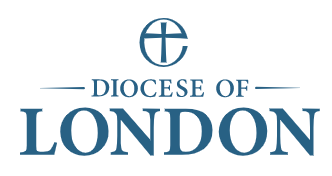| Job Scope |
| Direct and indirect reports |
- Deans of Racial Justice
- Racial Justice Officer [subject to funding]
- Administrator
|
| Budget responsibilities |
- Income and expenditure of the racial justice function
|
| Revenue responsibilities |
- Funding applications for additional resources to support the function
|
|
|
- College of Bishops
- Senior Staff (Bishops, Archdeacons, Department Directors)
- Racial Justice Steering Group (RJSG)
- Deans of Racial Justice in episcopal areas
- LDF departments where the interdependencies are (Compassionate Communities, Confident Disciples, Youth and Children, Communications, HR and Safeguarding, Ministry teams)
- Churches and worshipping communities
- London Diocesan Board of Schools (LDBS)
- St Paul’s Cathedral
- The Church of England Racial Justice Unit
- Communications network for GMH communities
- Organisations dedicated to racial justice and GMH communications networks
|
|
| Job Responsibilities |
Key Role Priorities
Strategic leadership and implementation of Diocesan Racial Justice Strategy (DRJS)
- Implement the Diocesan Racial Justice Strategy (DRJS) by working collaboratively with and through others so that the function gains trust and credibility amongst all stakeholders.
- Develop and deliver related action plans, in adherence to the Church of England’s guidance on Racial Justice, ensuring the Diocese continues to progress with the recommendations of ‘From Lament to Action’.
- Lead, support and challenge the Diocese regarding racial justice by working collaboratively with other members of the diocesan departments to ensure that goals and objectives for ‘a more racially just church’ are incorporated in all the Diocese policies, guidelines, processes and operations and providing support and assistance where needed
- Act as the Diocese’s most senior and independent Racial Justice Adviser to whom Senior Staff and others can turn to for expert advice.
- Work at senior level by being a member of the Senior Staff Team, whilst attending any appropriate committees, such as the Diocesan Bishop’s Council and other bodies to provide regular reporting of the Racial Justice work to them.
- Ensure the RJSG and its operations run smoothly, including preparation of agendas in conjunction with the Chair, production of minutes and overseeing the actions agreed.
- In conjunction with the Communications Team, ensure effective communication and public engagement on Racial Justice issues, including content for publications and media, responding to requests of information and incoming communications, where needed.
Monitoring and Evaluation
- Implement DRJS through action plans that include key performance indicators to measure progress against the strategic objectives.
- Report on findings and best practices to Diocesan Bishop’s Council and Diocesan Synod as well other relevant senior bodies as required, offering action focused progress against an agreed plan of activity.
- Take an evidence-based and data-focused approach. This would include reporting on key metrics to enable the Diocese to get insights on practice and culture as it relates to Racial Justice and effective monitoring and evaluation of initiatives at diocesan and episcopal area levels.
Stakeholder Engagement and Collaboration
- Collaborate with diocesan and episcopal area teams to embed racial justice across all operations.
- Support and empower the Deans of Racial Justice as well as leadership in the episcopal areas in their roles to imbed racial justice in everything that we do missionally and organisationally.
- Identify, develop and foster internal and external partnerships and networks collaboratively as necessary to aide progression and delivery of the Diocese’s strategic objectives and contribute to the Diocese’s civic role in the city and region.
- Act as the diocesan liaison on matters relating to improving Racial Justice work and practice with the national Church of England Racial Justice Unit and work with them and other external bodies to ensure coordination of efforts in joined activities and calls to action.
- Keep abreast of external developments and progress in racial justice matters which sometimes will require attendance at networking events and conferences and acting as a key point of knowledge across the Diocese.
Diversity, Equality and Inclusion
- Work with the Ministry and the HR teams as well as the practitioners in other EDI strands to:
- Encourage and promote GMH vocations, participation, and representation within the Diocese.
- Identify existing barriers to ministry and employment, positive action mechanisms and to develop creative approaches to achieve and sustain this.
- Identify and seek opportunities to acknowledge lived experiences and report on trends.
- Foster a more racially just culture at all diocesan levels and promote a culture of transparency on our performance against all aspects of the DRJS and its implementation plan.
- Through the Deans of Racial Justice, support the development of the GMH Anglicans community across the Diocese of London through local initiatives including the formation of groups for both ordained and lay ministers.
- Encourage the Diocese to use robust quantitative and qualitative data to understand performance, identify disparities, and inform decision-making through annual reports.
Operational Management
- Oversee the Racial Justice dispersed team of professionals, including recruitment and team development of paid staff and volunteers.
- Identify funding streams for Racial Justice work and lead any funding bids.
- Establish creative and effective systems for the function to ensure the delivery of work within deadlines and to high standards.
- Contribute to broader diocesan initiatives as needed.
Learning and Organisational Development
- Identify gaps and learning that can be used to develop Diocesan policies and operations that enable lasting change in the racial justice work.
- Develop and deliver anti-racism training in collaboration with external providers that understand the church context.
- Work with others to embed preaching and teaching on racial justice from a Christian perspective.
- Be visible and accessible to people from Global Majority Heritage backgrounds among the Diocese’s congregations and engage with the wider Diocesan communities.
- Encourage the contributions and input of communities and engagement through conversations, surveys, forums, focus groups, interviews and participatory research.
|


